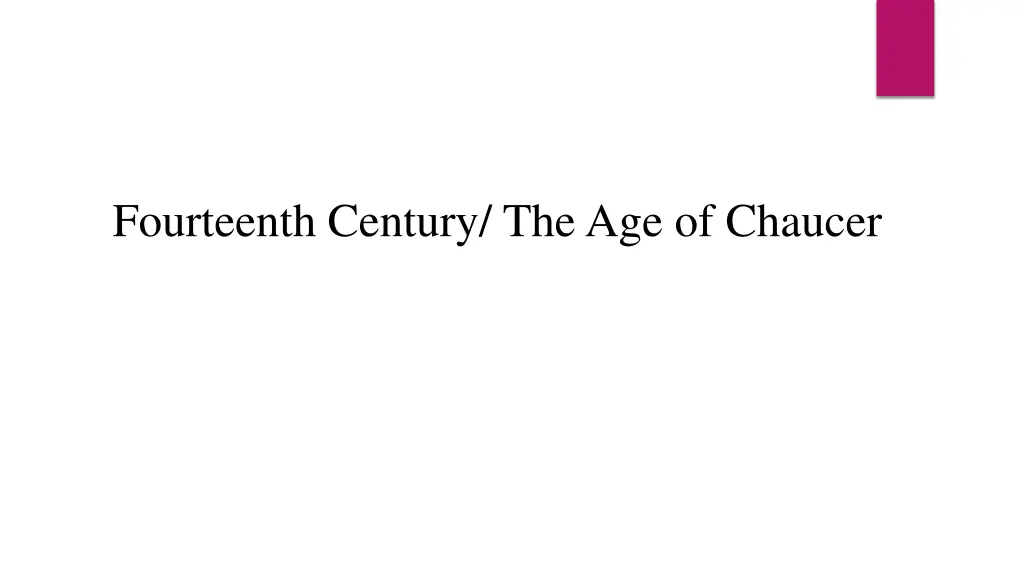
Fourteenth Century: Historical Events and Literary Tendencies
Explore the significant events of the fourteenth century, including the Hundred Years' War, the Black Death, the Peasants' Revolt, and the Lollard Movement. Learn about the social, economic, and political changes during this transformative period in history.
Uploaded on | 0 Views
Download Presentation

Please find below an Image/Link to download the presentation.
The content on the website is provided AS IS for your information and personal use only. It may not be sold, licensed, or shared on other websites without obtaining consent from the author. If you encounter any issues during the download, it is possible that the publisher has removed the file from their server.
You are allowed to download the files provided on this website for personal or commercial use, subject to the condition that they are used lawfully. All files are the property of their respective owners.
The content on the website is provided AS IS for your information and personal use only. It may not be sold, licensed, or shared on other websites without obtaining consent from the author.
E N D
Presentation Transcript
Historical Events Literary Tendencies Contemporaries
Important events of the fourteenth century Some of the important events of the fourteenth century are: 1 .Beginning of hundred years' war with France; 2.Black death ; 3.Beginning of the Lollard Movement; 4. Peasants' revolt; 5.Use of English in Schools, Law Courts, and the Parliament.
Hundred Years' War The Hundred Years' War was a long struggle between England and France over succession to the French throne. It lasted from 1337 to 1453, so it might more accurately be called the "116 Years' War."
Black Death The Black Death ravaged England during 1348- 49. It was a plague epidemic, called Black Death because death was caused by black boils on the body. It shattered completely the social and economic structure of contemporary England. It was called Black Death also because it was more terrible than Death as it ravaged almost half the population.
Peasants' Revolt Peasants' Revolt, also called Wat Tyler's Rebellion, (1381), first great popular rebellion in English history. Its immediate cause was the imposition of the unpopular poll tax of 1381, which brought to a head the economic discontent that had been growing since the middle of the century.
Dissatisfied with the ruling classes and the corruption of the clergy, the people stormed London, led by Wat Tyler, Jack Straw and John Hall. The latter advocated the famous doctrine Adam delved, and Eve span. Who was then the gentleman ?"
Lollard Movement John Wyclif and his followers, called Lollards, taught what they believed to be the true Christianity. They were against the papal degeneracy of Christ and promoted only those teachings of the Church that found sanction in the Bible. The teachings of these Lollards continued until the Reformation.
Chief features of the Age of Chaucer The age of Chaucer witnessed the rise of the English language and a curious modern note began to appear during this period, marking a break with the Middle Ages 1.Rise of National consciousness ; 2.The corruption in the Church ;
3.Decline of Feudal system ; 4.Rise of Middle class and progress of trade ; and 5. An advancement towards new learning ultimately leading to the Renaissance.
Important contemporaries of Chaucer 1) William Langland: (2) Mandeville ; 3. John Gower (4) John Wyclif
